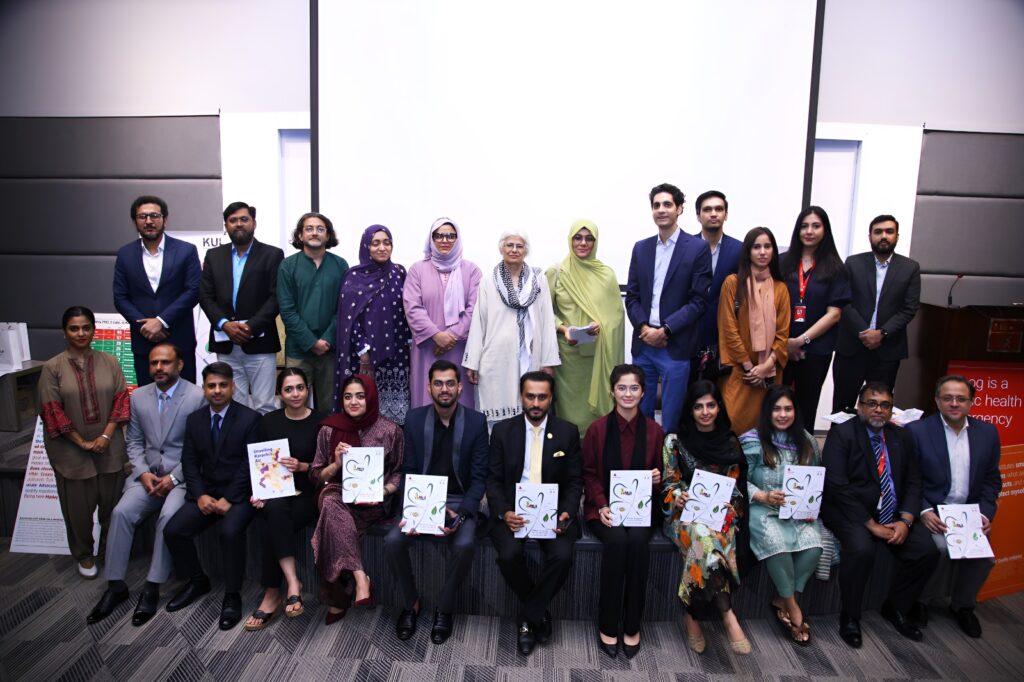This landmark report presents the city’s
most comprehensive, data-driven
analysis of air pollution sources
Staff Reporter

Karachi: On the occasion of World Environment Day, Bank Alfalah, in partnership with the Pakistan Air Quality Initiative (PAQI) and Karachi Urban Lab (KUL) at the Institute of Business Administration (IBA), launched the Karachi Emissions Inventory – A Scientific Foundation for a Clean Air City. This landmark report presents the city’s most comprehensive, data-driven analysis of air pollution sources.
The findings are based on 13 new air quality monitors, installed in key locations such as Saddar, Korangi, Gadap, North Nazimabad, and Clifton. Funded by Bank Alfalah, the monitors track major pollutants including PM2.5, SO₂, NOₓ, and CO₂. Using global best practices and localized data, the report identifies industrial activity and transportation as the primary sources of air pollution in Karachi.
Key insights show that the city emitted 394.82 kilotons of pollutants, with industry responsible for 49% and transport 33% of PM2.5 emissions. Power generation, mainly using high-sulfur fuels, contributed 30% of sulfur dioxide emissions. Karachi’s warm climate kept residential emissions low, while coastal sea breezes helped disperse pollutants.
The report was unveiled at an event at IBA, followed by a policy dialogue focused on improving inter-agency coordination, real-time monitoring, public health alerts, and green financing solutions.
“Karachi’s air crisis is solvable. With targeted reforms in industrial and transport policy, we can achieve visible improvements within five years,” said Abid Qamar, Founder of PAQI.
Madiha Javed Qureshi, Head of Corporate Communication and CSR at Bank Alfalah, emphasized the bank’s commitment: “We are proud to support evidence-based solutions for a cleaner, healthier Karachi. Green financing is a key driver of sustainable progress.”
Bank Alfalah has committed USD 10 million towards climate resilience, under the leadership of Chairman Sheikh Nahayan Mabarak Al Nahayan and its Board. Its #GreenWayForward initiative with WWF-Pakistan includes planting 35,000 mangroves and a pledge of 100,000 trees by 2030.
The Bank’s green portfolio has reached PKR 26.6 billion. It operates 155 solar-powered ATMs and launched its first green branch using a 30 kW solar hybrid system. It has also partnered with the International Finance Corporation (IFC) to enhance waste management, recycling, and water conservation under its green banking strategy.






















